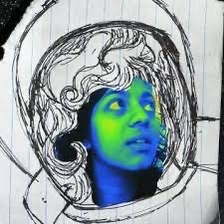Title
subtitle lorem ipsum dolor sit amet consectetur.
Use this area to describe your project. Markdown supported.
optional info list (delete if not using):
- Date:
- Client:
- Category:
Computational Skills Development for Next Generation Agriscience Professionals for Sustaining Data Driven Agriculture
.
A multidisciplinary team from Purdue University, led by Dharmendra Saraswat, a professor in the Department of Agricultural and Biological Engineering, along with co-project directors: Dennis Buckmaster, Ankita Raturi, and Somali Chaterji, professors in the Department of Agricultural and Biological Engineering (ABE); James Krogmeier and Aaron Ault in the Department of Electrical and Computer Engineering (ECE); Neil Knobloch in the Department of Agricultural Sciences Education and Communication (ASEC); and Mark Daniel Ward in the Department of Statistics, secured funding from USDA-NIFA’s Higher Education Challenge (HEC) Grants Program to develop a curriculum in agriculture informatics. Collaborating with the University of Kentucky and Tuskegee University, Purdue University is expanding access to these courses. The curriculum integrates computational thinking and software development skills, preparing agriscience students for data-driven roles in agriculture.
The HEC grant from USDA-NIFA has resulted in Purdue Engineering to offer new courses in agriculture informatics to prepare agriscience graduates for practical, data-driven work in the agricultural industry, on individual farms, and in academia. Collaborating with Joseph Dvorak and Tanya Dvorak from the University of Kentucky along with Joseph Essamuah-Quansha and Fall Souleymane from Tuskegee University, Purdue University is expanding access to these courses.
Twelve existing undergraduate courses at Purdue University, the University of Kentucky, and Tuskegee University now incorporate a two-week module on agriculture informatics. Additionally, three semester-long courses focus on building career-specific competencies in computational thinking and software development for both undergraduate and graduate students.
Using problem-based learning and an inverted classroom approach, these courses emphasize active student participation, communication, team building, leadership, and independent learning. The project aims to foster a collaborative environment and cultivate open-source communities in agriculture through experiential learning, professional development, and the publication of open-source materials. Ultimately, this initiative enhances teamwork among agriscience students, expands their networks, and better prepares them for careers in agriculture informatics.
Introduction to Agricultural Informatics
This course presents an overview of current and emerging technologies used in digital agriculture. You will be engaged in learning technology fundamentals through seven 2-week projects. These hands-on exercises will allow you to gain a practical understanding of the technology itself, review research and development trends, and debate opportunities and challenges presented by each technology. This course will equip you with basic computational thinking and software development skills for Agricultural Informatics careers.
Data Visualization Tools & Applications
This course is for students new to Data Visualization. It covers the visualization process, using lectures, readings, and hands-on experience with current tools. Students will learn IoT sensors for real-time data, edge computing, and running deep learning models for computer vision. Collaboration is encouraged. By the end, students will gain foundational knowledge in data analysis, visualization techniques, tools, and edge computing for future applications.
Introduction to ML Algorithms Driven by IoT and CV Applications
This course covers data science and data engineering algorithms for computer vision and IoT. Students will gain algorithmic proficiency and learn commercial software from Google, Microsoft, and Amazon. Topics include cloud computing, serverless infrastructure, data engineering best practices, machine learning innovations, decentralized learning, computational complexity, and ethics for real-world algorithm deployment.
Python for Digital Agriculture
The module introduces Python programming for digital agricultural applications. It employs ample examples in well-documented workbooks to demonstrate each learning objective in detail. Publicly available historical yield and weather datasets are used for data handling examples, making the module reproducible and open source.
Meet the Instructors

Dharmendra Saraswat Purdue University

Ankita Raturi
Purdue University

Somali Chaterji
Purdue University

Dennis Buckmaster
Purdue University

James V Krogmeier
Purdue University

Joseph Dvorak
University of Kentucky

Joseph Essamuah-Quansha
Tuskegee University

Fall Souleymane
Tuskegee University